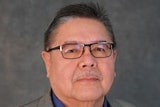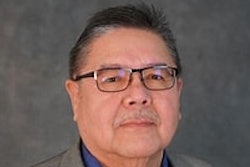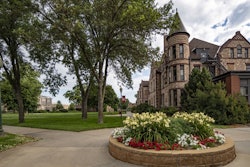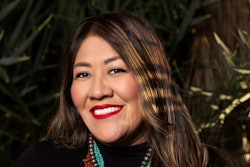ATLANTA
Four women from American Indian tribes came together in a panel organized by Spelman College on Wednesday to ask Americans not to forget about them in conversations about diversity and race.
As part of the Fourth Annual Leadership Conference for Women of Color, Spelman featured its first Women to Watch panel about American Indians, called “Funny, You Don’t Look Indian.”
“If this was going to be a true representation of women of color, we felt the need for having Native Americans on the table,” says Dr. Jane E. Smith, the executive director of Spelman’s Center for Leadership and Civic Engagement.
The American Indian women said they have no questions about their identity in a world where it seems everyone else is questioning who they are.
“We know where we come from, who our ancestors are, and we have great pride in that,” said panel moderator Beverly Wright, president of the consulting firm Soaring Feather, which is based in Martha’s Vineyard. “We were there before it [the Vineyard] became the ‘in’ place for rich families to vacation in.”
Elizabeth Neptune, a councilwoman of the Passamaquoddy Indian Township near Princeton, Maine, said the racism she experienced as a child is still present today. The township is located in one of the 11 poorest counties in the United States and there are people dying of diabetes, AIDS and other diseases.
“The statistics are four times the rate of anything that’s out there,” she said.
Chief Brenda A. Commander, the first woman to be elected chief of the Houlton Band of Maliseet Indians in Maine, said she has had to move on from the negativity of tribal politics in order to achieve results for her community.
“Politics is brutal and we keep having feuds. It takes a tribe five times longer than usual for anything to get done, but the more tribes keep talking, they’ll get it done,” she said. “We have to keep building bridges within and outside the tribe.”
Every February, the tribal groups lobby on Capitol Hill for a piece of the funding pie.
“If you’re a tribe with no economic growth and looking for funds, the pot in Washington gets smaller,” said Wright. “We know it and live with it.”
The panelists also spent time addressing the disappearance of Native languages. They said more American Indian children are choosing to speak English to avoid racism, which is slowly eroding proficiency in their own traditional languages. Efforts are now underway to preserve the languages.
During the panel, Neptune also noted the similarities between Black and American Indian men. Tribes are built on matriarchal lines where the women are the major wage earners. Neptune says she believes that Native men were originally hunters and leaders, but a lot of their identity was stripped when they came into contact with Europeans. When reservations were be cordoned off and the only contact with the outside world came through government agents, men lost their primary role.
“A lot of people don’t feel empowered,” added Commander. “We have a bad schooling system and the richer Natives, unfortunately, may not always give back.”
Sharon Miller, the public relations director of the Alabama Coushatta Tribe of Texas, ended on an emotional note: “When you speak of diversity and talk of Asians, Hispanics and others, we would also like to be included. We are human beings, too and are proud and would like to be included.”
— By Shilpa Banerji
There are currently 6 comments on this story.
Click here to post a comment.
© Copyright 2005 by DiverseEducation.com















